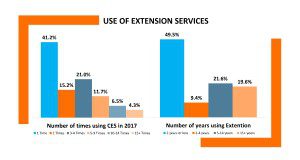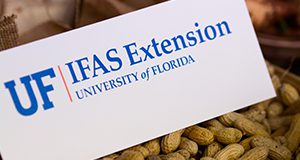The Florida Cooperative Extension Service (FCES) provides a variety of information to clients throughout the state. In order to determine the extent of client satisfaction, the FCES conducts an annual survey. The survey was sent to a sample of clients who have received educational information between March and July, 2017. A total of 1,202 participants responded, and 94.9% of Extension clients reported that they were satisfied or very satisfied with the overall services provided. Many Extension clients also shared suggestions for improving services, including improved communication, increased advertising, and increased availability for some classes. In this five-page document from the UF/IFAS Department of Agricultural Education and Communication, Glenn D. Israel and Tiffany Henderson summarize the results of the survey and provide recommendations for how to improve Extension’s services.
http://edis.ifas.ufl.edu/wc326
Tag: Extension programs
Overview of Extension Program Planning Models

The use of program plan development models within Extension has a long history of application based on environmental context, interest, and perceived value. The purpose of this 6-page article is to articulate a comparative overview of the various program planning models designed and employed by Extension professionals in education contexts. Written by John Diaz, Cody Gusto, and David Diehl and published by the UF/IFAS Department of Agricultural Education and Communication, January 2018.
http://edis.ifas.ufl.edu/wc289
Developing a Program Plan Based on the Program Planning Cycle
For over a century, Extension programs have used specific program development plans to create or refine services for clientele. This 6-page article seeks to provide an overview of fundamental tenets within program planning, how a planning process informs a development plan, and why these components are integral to Extension services. Written by John Diaz, Cody Gusto, and David Diehl and published by the UF/IFAS Department of Agricultural Education and Communication, December 2017.
http://edis.ifas.ufl.edu/wc290
Important Resources for the Development and Sustainability of School Garden Programs
Extension agents serve as a valuable resource in providing teachers with in-service training and technical education to increase their ability to effectively use gardening as an instructional tool. This three-page document provides an outline of important resources to help in the development and sustainability of a school garden program. Written by John M. Diaz and Erin Elsberry and published by the Department of Agricultural Education and Communication.
http://edis.ifas.ufl.edu/wc283
Enhancing the Success of Extension Programs with the Social Exchange Theory
Social Exchange Theory (SET) is based on the principle that human behavior is an exchange of rewards between people. This three-page fact sheet explains how it can be applied to Extension programming to promote clientele participation in programs and a commitment to changing their behaviors. Written by Amanda D. Ali and Laura A. Warner and published by the Department of Agricultural Education and Communication.
http://edis.ifas.ufl.edu/wc280



